The FBI vs. Apple
Part of a series on Apple. [View Related Entries]
Overview
The F.B.I. vs. Apple is an ongoing dispute between Apple, Inc. and the United States Department of Justice in which the Federal Bureau of Investigation (FBI) is asking for Apple to create a method by which security features tied to version 8 of the iOS operating system could be bypassed by investigators attempting to gather data for law enforcement activities. Apple has opposed the official order, saying that creating the bypass (often referred to as a "backdoor") would negate the safety of the iPhone and set a dangerous anti-privacy precedent.
Background
On February 16th, 2016, a U.S. District Court judge presiding over the case ordered Apple to provide "reasonable technical assistance" to the federal investigators in unlocking the data stored on an iPhone that had been owned by Syed Farook, one of the two killers in the 2015 San Bernardino Shooting. According to the court ruling, Apple was ordered to help the FBI with clearing at least two technical obstacles hindering their investigation: disabling the phone's auto-erase function, which activates after 10 consecutive failed attempts at entering the password, and installing a custom-coded version of the iPhone operating system that would allow investigators to bypass the phone's security features electronically.[2]
Notable Developments
Apple's Response
On February 17th, Apple CEO Tim Cook released an open letter titled “A Message to Our Customers,” revealing that the U.S. government demanded the company unlock an iPhone that had been recovered during the San Bernardino shooting investigation. The company also announced its intention to challenge the court ruling, asserting that its compliance would require creating a “backdoor” to circumvent its own security measures, an action that could set a dangerous precedent in cooperation between the government and the information technology sector.[1]
"The government is asking Apple to hack our own users and undermine decades of security advancements that protect our customers -- including tens of millions of American citizens -- from sophisticated hackers and cybercriminals. The same engineers who built strong encryption into the iPhone to protect our users would, ironically, be ordered to weaken those protections and make our users less safe.
We can find no precedent for an American company being forced to expose its customers to a greater risk of attack. For years, cryptologists and national security experts have been warning against weakening encryption. Doing so would hurt only the well-meaning and law-abiding citizens who rely on companies like Apple to protect their data. Criminals and bad actors will still encrypt, using tools that are readily available to them.[3]
Justice Department's Response
On February 19th, The U.S. Department of Justice filed a motion in the United States District Court for Central California to compel Apple to obey the original court order. The court order accused Apple of using the FBI's request as a "marketing ploy", and claimed that the company forced the government to pursue further legal action. From the order:[4]

![page 7 of the Department of Justice's court order Case 5:16-cm-00010-SP Document 1 Filed 02/19/16 Page 7 of 35 Page ID#17 1 Apple left the government with no option other than to apply to 2 |this Court for the Order issued on February 16, 2016. The Order 3 requires Apple to assist the FBI with respect to this single iPhone 4 used by Farook by providing the FBI with the opportunity to determine 5 the passcode. The Order does not, as Apple's public statement 6 alleges, require Apple to create or provide a "back door" to every 7 iPhone; it does not provide "hackers and criminals" access to 8iPhones; it does not require Apple to "hack [its] own users" or to 9"decrypt" its own phones; it does not give the government "the power 10 to reach into anyone's device" without a warrant or court 11 authorization; and it does not compromise the security of personal 12 information. See Exhibit 1. To the contrary, the order allows Apple 13 to retain custody of its software at all times, and it gives Apple 14 flexibility in the manner in which it provides assistance. In fact 15 the software never has to come into the government's custody 16 17 number of orders issued pursuant to the All Writs Act to facilitate 18 the execution of search warrants on Apple devices running earlier 19 versions of iOS 20 warrant is therefore not unprecedented; Apple itself has recognized 21 it for years. Based on Apple's recent public statement and other 22statements by Apple, Apple's current refusal to comply with the 23Court's order, despite the technical feasibility of doing so, instead 2 4 25 |will provide assistance with unlocking devices running ioS versions 26 ||order. See "Extracting Data from Passcode Locked iOS Devices,"Apple 27available at http://www.apple.com/privacy/docs/legal-process 28now objects to providing such assistance In the past, Apple has consistently complied with a significant 1 The use of the All Writs Act to facilitate a Apple' s Legal Process Guidelines continue to state that Apple earlier than 8.0, and advises as to what language to include in the Legal Process Guidelines § 111(1) (updated September 29, 2015) guidelines-us.pdf. However, Apple has informed another court that it 2](https://i.kym-cdn.com/photos/images/masonry/001/084/241/491.jpg)
![Department of Justice's court order, page 8 Case 5:16-cm-00010-SP Document 1 Filed 02/19/16 Page 8 of 35 Page ID#18 1 appears to be based on its concern for its business model and public 2 |brand marketing strategy.2 3 Accordingly, the government now brings this motion to compel 4 While the Order includes the provision that "to the extent that Apple 5 believes that compliance with this Order would be unreasonably 6 burdensome, it may make an application to this Court for relief 7 within five business days of receipt of the Order, " Apple' s public 8statement makes clear that Apple will not comply with the Court' s 9 Order. The government does not seek to deny Apple its right to be 10 heard, and expects these issues to be fully briefed before the Court; 11 however, the urgency of this investigation requires this motion now 12 that Apple has made its intention not to comply patently clear 13This aspect of the investigation into the December 2, 2015 terrorist 14 attack must move forward 15 II. STATEMENT OF FACTS 16 17 Act order, and the Declaration of FBI Supervisory Special Agent 18("SSA") Christopher Pluhar, which was attached thereto, both of which 19were filed on February 16, 2016, the FBI has been investigating the 20 As set forth in the government's application for the All Writs 2 As Apple has stated on its web page, "Our commitment to customer privacy doesn't stop because of a government information request. Unlike our competitors, Apple cannot bypass your passcode and therefore cannot access this data. So it' s not technically feasible for us to respond to government warrants for the extraction of this data from devices in their possession running ios8." (https://web.archive.org/web/20140918023950/http://www.apple.com/priv acy/government-informaton-requests/)Notably, notwithstanding this previous statement, Apple concedes that it has retained the ability to do as the Court rde red 23 24 25 26 this Court's February 16, 2016, order is not legally necessary, in 27 stated interest in adversarial testing of the order's legal merits, 28 due process and adversarial testing it seeks Although a separate order compelling Apple' s compliance with light of Apple' s publicly stated " [o] pposing [of] this order" and its the government files this noticed motion to provide Apple with the 3](https://i.kym-cdn.com/photos/images/masonry/001/084/249/604.jpg)
“Apple left the government with no option other than to apply to this Court for the Order issued on February 16, 2016. The Order requires Apple to assist the FBI with respect to this single iPhone used by Farook by providing the FBI with the opportunity to determine the passcode. The Order does not, as Apple’s public statement alleges, require Apple to create or provide a ‘back door’ to every iPhone; it does not provide ‘hackers and criminals’ access to iPhones; it does not require Apple to ‘hack [its] own users’ or to ‘decrypt’ its own phones; it does not give the government ‘the power to reach into anyone’s device’ without a warrant or court authorization; and it does not compromise the security of personal information.”
iCloud Password Change
In response to the mounting pressure from the Department of Justice, Apple revealed that the FBI had missed its window of opportunity to retrieve the data from the phone by prematurely changing Farook's iCloud password, which would have allowed the phone to connect to Apple's servers and the data to potentially be retrieved without bypassing the password of the individual phone. Initially, the San Bernardino Sheriff's Department was held responsible for the action, but the Department of Justice later disclosed that the phone was, in fact, in the possession of the FBI at the time of the password change.[12]
Other iPhone Data Requested by FBI
On February 23rd, a New York District Court filing by Mark Zwilliger, one of Apple's lawyers, was unsealed; the filing detailed 12 other cases in which the United States Government had asked Apple to retrieve data from fifteen other iOS devices since October 2015. This contested with the FBI's message on the San Bernardino unlocking case, in which they claimed that the software bypass they were seeking from Apple was a special case that would not be duplicated. The filing detailed that the government had asked to access data on 11 devices that had not been operating iOS 8, and therefore were able to have their data retrieved, but in four of the pending cases the device was running iOS 8. In all of the cases, the write said that Apple objected to the government's request.[8]



Public Reaction
On February 17th, Republican presidential candidate Donald Trump urged Apple to unlock the phone (shown below).
On February 18th, Business Insider[16] published an article by John McAfee, who offered to decrypt the iPhone free of charge in three weeks to prevent Apple from compromising iPhone devices. Many other technology leaders agreed with Apple. Mark Zuckerberg, the owner of Facebook, said that he sided with Apple in the dispute,[11] but on February 23rd, Bill Gates told the Financial Times that he disagreed with Apple's stance, saying that the company should comply with the government.[7]
“This is a specific case where the government is asking for access to information. They are not asking for some general thing, they are asking for a particular case. It is no different than [the question of] should anybody ever have been able to tell the phone company to get information, should anybody be able to get at bank records. Let’s say the bank had tied a ribbon round the disk drive and said, ‘Don’t make me cut this ribbon because you’ll make me cut it many times’.”
On February 22nd, the Pew Research Center released a poll that stated that 51% of Americans sided with the FBI in the unlocking dispute, and that 38% of people sided with Apple. However, the level of support was very different depending on what age group the respondents were in. From the study:[10]

Across age groups, adults ages 18-29 are divided over what Apple should do: 47% say the company should unlock the iPhone, while about as many (43%) say it should not unlock the phone to ensure the privacy of its other users. Among adults age 30 and older, somewhat more say Apple should unlock rather than not unlock the San Bernardino suspect’s iPhone. By a 54%-27% margin, those 65 and older think Apple should unlock the phone; 18% do not offer a view.
Some privacy advocates, like Edward Snowden, said they believed in Apple's right to encrypt the devices but not the fact that they were having to defend themselves from the government. In a tweet that was retweeted more than 18,000 times, Snowden stated that "The @FBI is creating a world where citizens rely on #Apple to defend their rights, rather than the other way around."[13] An organization called Don't Break Our Phones[14] held rallies nationwide calling for the FBI to stop asking Apple to unlock the phones; reports said that the protests were ill-attended.[15]
FBI Withdrawal of Request
On March 21st, the day before the scheduled hearing of the case, the Justice Department requested a postponement of the hearing on the grounds that its investigators need more time to explore the possibility of unlocking the iPhone without the aid of Apple Inc., which was granted by the court. A week later, on March 28th, the Justice Department formally withdrew its motion against Apple Inc. after announcing that the FBI had successfully unlocked the iPhone with the technical assistance of an unnamed third party. On April 7th, FBI Director James Comey further revealed that its investigators used a tool that the agency had purchased from the aforementioned third party, which was specifically designed to unlock iPhone devices without the Touch ID sensor, including Farook's iPhone 5C. However, Comey refused to disclose the identity of the third party helpers.
The Identity of the Third Party
Shortly after the Justice Department's announcement, many speculations about the identity of the anonymous third party began to run amok online, with some news outlets initially identifying the Israeli telecommunication company Cellebrite as the mysterious helper, although they were subsequently dismissed as conjectures by The Washington Post's report which claimed the FBI had instead paid "professional hackers" for assistance, citing anonymous sources "familiar with the matter." As of April 15th, the identity of the third-party hackers remains unknown.
Search Interest
External References
[1] Wikipedia – San Bernardino Attack: Phone Decryption
[2] Associated Press – Q&A: A Look at the Apple vs Justice Dept. Court Fight
[3] Apple – A Message to Our Customers
[4] United States District Court Filing
[5] TechCrunch – Apple Executives Detail Scope Of FBI Request And Company’s Motivations For Not Complying
[6] LA Times – The war between the FBI and Apple just heated up again
[7] FT – Gates breaks ranks over FBI Apple request
[8] Fortune – FBI Wanted Apple to Unlock More Than Just One Device
[10] Pew Research Center – More Support for Justice Department Than for Apple in Dispute Over Unlocking iPhone
[11] MacWorld – http://www.macworld.com/article/3036292/security/mark-zuckerberg-on-apple-vs-fbi-were-sympathetic-with-apple.html
[12] USAToday – Apple says iPhone ID change prevented data access
[13] Twitter – Edward Snowden's Tweet
[15] Inverse – In NYC, an FBI Protest and Apple Rally: This Is About Security for All of Us
[16] Business Insider – JOHN MCAFEE: I'll decrypt the San Bernardino phone free of charge so Apple doesn't need to place a back door on its product
[17] ABC News – Justice Department Withdraws Request in Apple iPhone Encryption Case After FBI Accesses San Bernardino Shooter's Phone
[18] CNN – FBI says it has cracked terrorist's iPhone without Apple's help
[19] The Washington Post – FBI paid professional hackers one-time fee to crack San Bernardino iPhone
[20] Los Angeles Times – Apple wants the FBI to reveal how it hacked the San Bernardino killer's iPhone
[21] USA Today – Apple rejects latest DOJ request to extract iPhone data
[22] Apple – Answers to your questions about Apple and security
Recent Videos 1 total
Recent Images 16 total
Share Pin
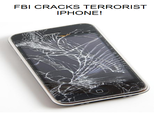


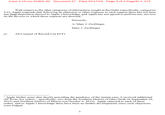
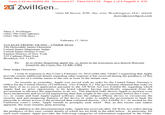



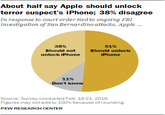
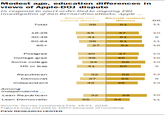
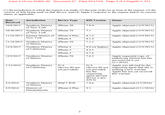
![Department of Justice's court order, page 8 Case 5:16-cm-00010-SP Document 1 Filed 02/19/16 Page 8 of 35 Page ID#18 1 appears to be based on its concern for its business model and public 2 |brand marketing strategy.2 3 Accordingly, the government now brings this motion to compel 4 While the Order includes the provision that "to the extent that Apple 5 believes that compliance with this Order would be unreasonably 6 burdensome, it may make an application to this Court for relief 7 within five business days of receipt of the Order, " Apple' s public 8statement makes clear that Apple will not comply with the Court' s 9 Order. The government does not seek to deny Apple its right to be 10 heard, and expects these issues to be fully briefed before the Court; 11 however, the urgency of this investigation requires this motion now 12 that Apple has made its intention not to comply patently clear 13This aspect of the investigation into the December 2, 2015 terrorist 14 attack must move forward 15 II. STATEMENT OF FACTS 16 17 Act order, and the Declaration of FBI Supervisory Special Agent 18("SSA") Christopher Pluhar, which was attached thereto, both of which 19were filed on February 16, 2016, the FBI has been investigating the 20 As set forth in the government's application for the All Writs 2 As Apple has stated on its web page, "Our commitment to customer privacy doesn't stop because of a government information request. Unlike our competitors, Apple cannot bypass your passcode and therefore cannot access this data. So it' s not technically feasible for us to respond to government warrants for the extraction of this data from devices in their possession running ios8." (https://web.archive.org/web/20140918023950/http://www.apple.com/priv acy/government-informaton-requests/)Notably, notwithstanding this previous statement, Apple concedes that it has retained the ability to do as the Court rde red 23 24 25 26 this Court's February 16, 2016, order is not legally necessary, in 27 stated interest in adversarial testing of the order's legal merits, 28 due process and adversarial testing it seeks Although a separate order compelling Apple' s compliance with light of Apple' s publicly stated " [o] pposing [of] this order" and its the government files this noticed motion to provide Apple with the 3](https://i.kym-cdn.com/photos/images/list/001/084/249/604.jpg)

![page 7 of the Department of Justice's court order Case 5:16-cm-00010-SP Document 1 Filed 02/19/16 Page 7 of 35 Page ID#17 1 Apple left the government with no option other than to apply to 2 |this Court for the Order issued on February 16, 2016. The Order 3 requires Apple to assist the FBI with respect to this single iPhone 4 used by Farook by providing the FBI with the opportunity to determine 5 the passcode. The Order does not, as Apple's public statement 6 alleges, require Apple to create or provide a "back door" to every 7 iPhone; it does not provide "hackers and criminals" access to 8iPhones; it does not require Apple to "hack [its] own users" or to 9"decrypt" its own phones; it does not give the government "the power 10 to reach into anyone's device" without a warrant or court 11 authorization; and it does not compromise the security of personal 12 information. See Exhibit 1. To the contrary, the order allows Apple 13 to retain custody of its software at all times, and it gives Apple 14 flexibility in the manner in which it provides assistance. In fact 15 the software never has to come into the government's custody 16 17 number of orders issued pursuant to the All Writs Act to facilitate 18 the execution of search warrants on Apple devices running earlier 19 versions of iOS 20 warrant is therefore not unprecedented; Apple itself has recognized 21 it for years. Based on Apple's recent public statement and other 22statements by Apple, Apple's current refusal to comply with the 23Court's order, despite the technical feasibility of doing so, instead 2 4 25 |will provide assistance with unlocking devices running ioS versions 26 ||order. See "Extracting Data from Passcode Locked iOS Devices,"Apple 27available at http://www.apple.com/privacy/docs/legal-process 28now objects to providing such assistance In the past, Apple has consistently complied with a significant 1 The use of the All Writs Act to facilitate a Apple' s Legal Process Guidelines continue to state that Apple earlier than 8.0, and advises as to what language to include in the Legal Process Guidelines § 111(1) (updated September 29, 2015) guidelines-us.pdf. However, Apple has informed another court that it 2](https://i.kym-cdn.com/photos/images/list/001/084/241/491.jpg)

Comments ( 69 )
Sorry, but you must activate your account to post a comment.
Please check your email for your activation code.